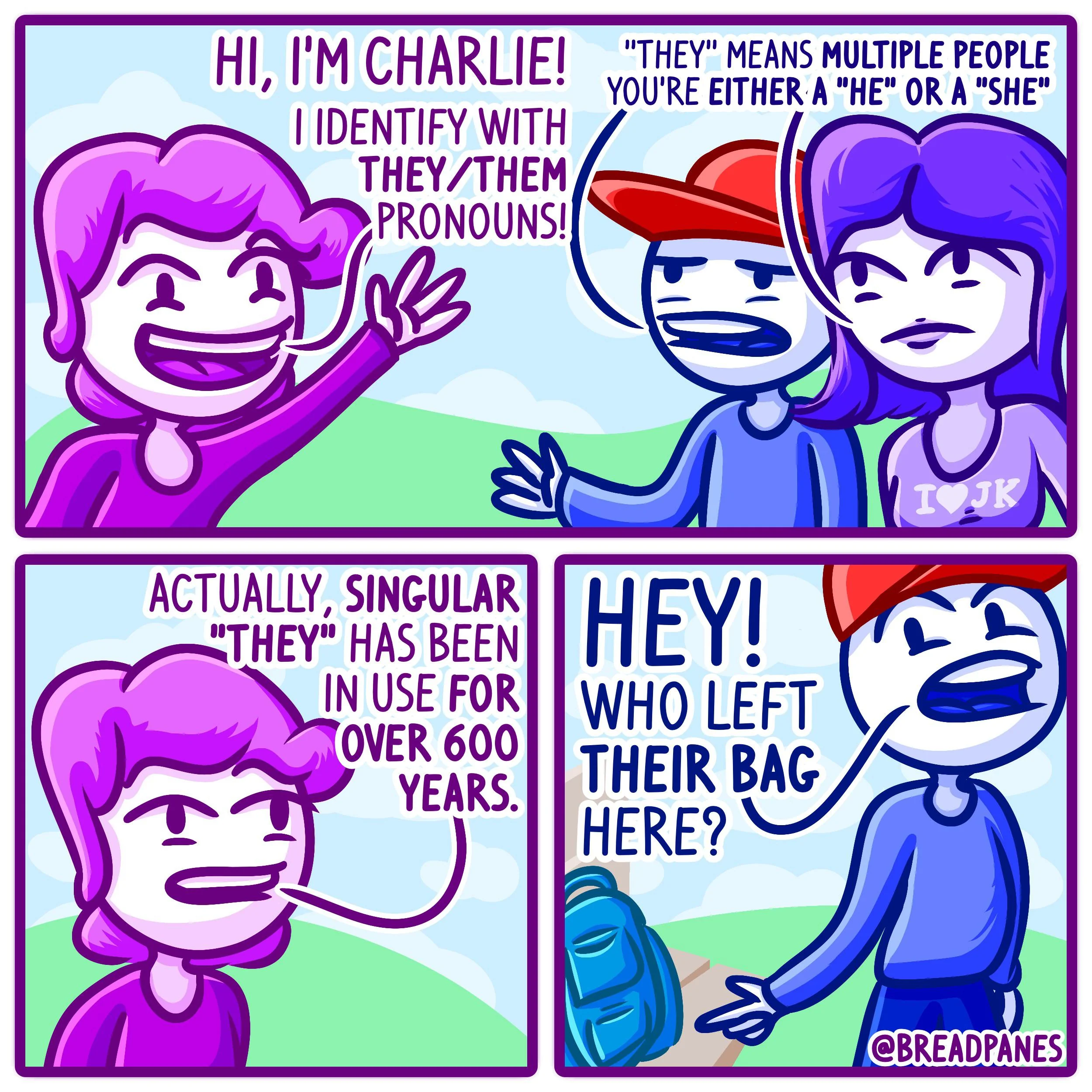They/Them
-
I think because it's so small for English and because I'm a native speaker it's all just second nature and I don't really know the technicalities. Conjugating verbs in Spanish is one of my most frustrating areas of learning lol.
-
Yeah, it's only really "Be" and "have" that have any conjugation variety in English, and then the old 3rd singular +s and past tense and participles.
Since most English speakers don't learn much grammar it can be tricky.
A few lessons on English grammar would probably make learning a second language much easier. -
[email protected]replied to [email protected] last edited by
Well it kinda is. Names are like pronouns, in the sense that we use them to describe to whom we refer.
They are a non injective function on the name set.
The restriction you would like to make is that the function is not multivalued. But it is. As an example, Andrea is a name that is usually associated with a female person, but it is a normal name for male people in Italy.
-
[email protected]replied to [email protected] last edited by
Well it kinda is.
I disagree.
Pronouns are like names
Pronouns are not names.
-
Again, we're talking about different linguistic issues, which I'll demonstrate below. I see now that my example wasn't a good example because it conflates a consequence of the problem with the problem itself.
The ambiguity
There are two different ambiguities. You're talking about ambiguity over the subject whereas I'm talking about ambiguity over the sense of the pronoun.
"I was with Dan (they/them) the other day. They hadn't brought a poster they needed and went back to the car to get it."
No ambiguity over sense of "they". No ambiguity over subject.
"I was with the newlyweds the other day. They hadn't brought a poster they needed and went back to the car to get it."
No ambiguity over sense of "they". No ambiguity over subject.
"I was with Dan (he/him) and Steve (he/him) the other day. He hadn't brought a poster he needed and went back to the car to get it."
No ambiguity over sense of "he". Ambiguity over subject.
"I was with Dan (they/them) and Steve the other day. They hadn't brought a poster they needed and went back to the car to get it."
Ambiguity over sense of "they". Ambiguity over subject.
The ambiguity in the sense of the pronoun is the confusion. That's the problem. The ambiguity over the subject is a problem but not the problem I was talking about.
-
[email protected]replied to [email protected] last edited by
I disagree.
I disagree.
Pronouns are not names.
Yes, that is why I wrote "like". They serve the same functionality.
second
That is the first time you wrote second. That's very telling.
-
 C [email protected] shared this topic
C [email protected] shared this topic

